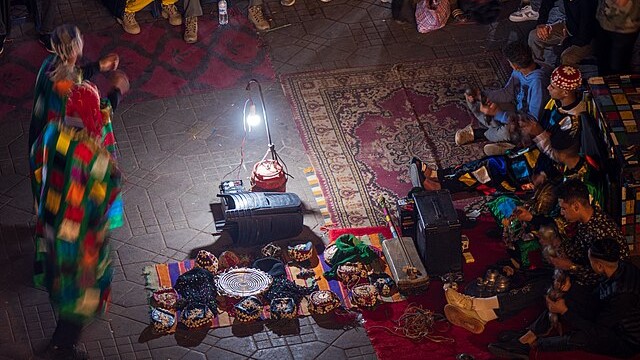In the Republic of the Congo, the voices of the past remain an active presence, shaping identity and guiding social values through a living tradition of storytelling. These oral histories—woven from parable, song, poetry, and memory—span generations, linking the present to an intricate tapestry of myth, history, and custom.
In a country defined by its ethnic diversity, each community preserves its own narratives, contributing to a layered national heritage. Myths of origin, accounts of migration, and chronicles of conflict and reconciliation are carried not in books but in the cadences of the human voice. Within these stories lie moral codes, social practices, and the distilled wisdom of centuries.
Once shared primarily in village gatherings, markets, and family courtyards, these traditions are now finding new spaces. Schools have begun integrating folk tales into their curricula, ensuring that children grow up fluent not only in modern languages and technology but also in the cultural idioms of their ancestors. Community centers host workshops where elders recount historical episodes and recite age-old fables, fortifying collective memory.
Technology, often seen as a threat to tradition, has become a tool for preservation. Storytellers’ performances are increasingly recorded and archived, allowing them to reach audiences far beyond their immediate communities. Digital platforms have transformed fragile, ephemeral performances into enduring archives, ensuring that the voices of elder generations can be heard well into the future.
These narratives have a unifying power in a cosmopolitan society. Storytelling spaces—whether a city square, a rural gathering, or a cultural festival—draw people of varied backgrounds to share in a common heritage. Listeners lean in as a griot’s voice rises and falls, tracing the rhythms of history, its lessons resonating across social divides.
Sustaining these traditions has become both a cultural and civic act. Voluntary initiatives, from oral history recording projects to youth-led storytelling programs, play a growing role in keeping the practice alive. For many, participation is an affirmation of belonging, a way of anchoring personal identity within the broader currents of national memory.
The persistence of these oral traditions is a quiet act of resilience. In their continued telling, the Republic of the Congo’s communities affirm not only their history but their future—ensuring that the echoes of their ancestors remain part of the conversation for generations to come.
Sources:
- Gondola, Didier. History of the Congo: From Leopold to Modern Times. Cambridge University Press, 2022.
- Vansina, Jan. Oral Tradition as History. University of Wisconsin Press, 1985.
- Republic of the Congo Ministry of Culture. National Cultural Heritage Preservation Report, 2023.

